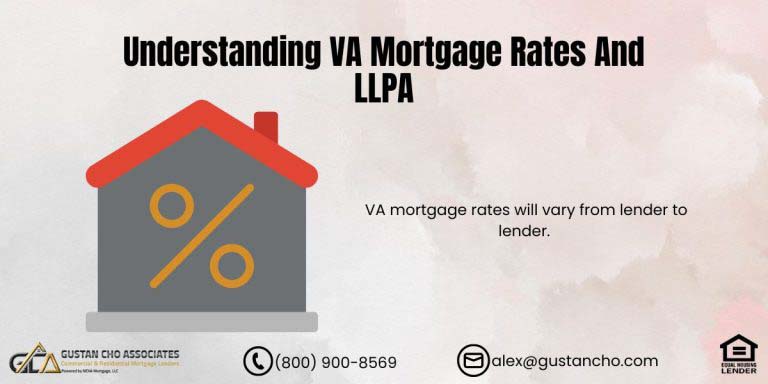Eligible active duty and retired veterans meeting the minimum Washington VA loan requirements can qualify for VA loans with no minimum credit score requirements, no maximum debt to income ratio caps, and no maximum loan limits. Washington has one of the highest home prices in the nation next to California. FHA and conventional loans have maximum loan limits on home loans. FHA and conventional loans have higher loan limits in high-cost areas. High-cost areas are counties in the state where home prices are higher than the national median home prices. However, there are no maximum loan limits on VA loans in Washington. Gustan Cho Associates are experts in originating, processing, underwriting VA loans in Washington with no lender overlays. Most Washington VA lenders have lender overlays on VA loans. We will cover the difference between the minimum Washington VA loan requirements versus lender overlays by individual lenders. In this article, we will be covering the minimum Washington VA loan requirements and guidelines for veterans.
Do All VA-Approved Lenders Have The Same Washington VA Loan Requirements?
Most veteran homebuyers are under the assumption that all lenders have the same Washington VA loan requirements on VA loans. This is not true. One lender may have a specific credit score requirement and debt to income ratio cap on VA loans when the VA does not mandate a minimum credit score or DTI requirement. One lender may require a 620 credit score whereas another lender may require a 640 FICO. As mentioned earlier, the VA does not have a minimum credit score requirement on a minimum credit score if the borrower can get an approve/eligible per automated underwriting system (AUS). There is no maximum debt to income ratio requirement on VA loans. However, many lenders will require a 45% to 50% debt to income ratio cap on mortgage loan applicants on VA loans. Individual lenders are allowed to have higher credit score requirements that surpass the minimum VA loan requirements. The higher VA credit score requirements are called lender overlays. We will discuss and cover more about the difference between the Washington VA loan requirements versus the individual VA lender overlays by mortgage companies.
VA Loan Requirements On Collection And Charged-Off Accounts
Borrowers with outstanding collections and charge-off accounts do not have to pay them off to qualify for FHA Loans. Gustan Cho Associates has no lender overlays on debt to income ratio and collection/charge off accounts. Gustan Cho Associates has a national reputation for having the best VA loan program in the U.S. for veteran homebuyers with outstanding collections and charge-off accounts. In general, the best mortgage program in the market for borrowers with prior bad credit is VA loans. The Veterans Affairs Administration is the federal government agency that administers VA loans. The Veterans Administration (VA) has the most lenient mortgage agency guidelines for borrowers with prior bad credit than any other mortgage loan program. This only holds true if the veteran borrower had timely payments in the past 12 months. A large number of our borrowers at Gustan Cho Associates are folks who have credit scores down to 500 FICO and debt to income ratio exceeding 60% on VA loans. However, VA loans are limited to active and/or retired veterans with a VA certificate of eligibility.
High-Balance Washington VA Loan Requirements
Washington has more high-cost counties than any other state in the nation next to California. A large number of counties in Washington are classified as high-cost areas. High-cost areas have higher FHA and conforming loan limits on government and conventional loans. VA lenders in Washington can have higher lending requirements on high-balance VA loans versus traditional VA loans not surpassing the maximum conforming loan limits. Gustan Cho Associates has no lender overlays on high-balance VA loans in Washington besides loan-level pricing adjustments. What this means is borrowers with lower credit scores will get pricing adjustments on high-balance VA loans.
Importance Of Credit And Income On VA Loans
Credit scores and income are the two most important factors when it comes to qualifying for VA loans in Washington. If you are stating income in mortgage qualification, you must make sure that your income is fully documented via paycheck stubs, W2s, or tax returns. If we had to choose between credit and income, both are equally important when it comes to qualifying for VA loans. Even though the VA has no minimum credit score requirements, you need to get an approve/eligible per automated underwriting system (AUS) or need to qualify for a manual underwrite. It is next to impossible to get an AUS approval if you have been late in any monthly debt obligations in the past 12 months. If the borrower cannot get an AUS approval but gets a refer/eligible per AUS, the borrower can qualify for a manual underwrite. However, manual underwriting guidelines require timely payments in the past 24 months. Credit scores determine how lenders price mortgage rates. Therefore, having higher credit scores is important for getting the best mortgage rates on VA loans.
Washington VA Credit Requirements
Lower credit scores and high debt to income ratio are viewed as high risk for lenders. Lenders want to feel secure borrowers have the ability to repay their new housing payments and are able to pay for a new loan without financial stress. This blog on Washington VA loan requirements will help our viewers looking to qualify for VA loans in Washington or wanting to get educated on the VA loan process and are planning on buying a home soon.
VA Debt to Income Ratio Guidelines
The debt to income ratio is the amount of monthly debt you have divided by your monthly gross income. There is no maximum debt to income ratio caps on VA loans with an automated underwriting system findings approval. However, there are front-end and back-end DTI caps on VA manual underwriting files.
There are two types of debt to income ratios.
- Front End DTI
- Back End DTI
Front End Debt to Income Ratio

The first type of debt to income ratio is known as the front-end debt to income ratio. Front End DTI is the housing debt to income ratio. The housing ratio is which is the principal, interest, taxes, and insurance payments on the new proposed housing payment divided by gross monthly income. Most lenders want the housing debt to income ratio to fall within the 31% housing debt to income ratio. The 31% housing DTI is not VA’s requirement but overlays on front-end DTI by VA lenders. VA loans do not have a maximum front-end and/or back-end debt to income ratio requirement. The debt to income of the veteran borrower is determined by the automated underwriting system. Many clients at Gustan Cho Associates have gotten automated approval with over 60% debt to income ratio. The key in getting an AUS approval with higher debt-to-income ratios is strong residual income. Borrowers can get an AUS approval with 65% DTI as long as they have strong residual income.
Back End Debt To Income Ratio
The other debt to income ratio is the combined debt to income ratio and it is also known as the back-end debt to income ratio. The combined debt to income ratio is the total monthly minimum payments, such as minimum credit card payments, student loans, installment loans, automobile loans, and mortgage loans divided by total monthly gross income. On conventional loan programs, the maximum back-end debt to income ratio that is required is up to 50% DTI. However, it is difficult to get a 50% DTI on conventional loans unless the borrower has a 680 FICO or higher. In general, the debt to income on conforming loans is capped at 45% DTI.
For VA loans, there is no maximum back-end debt to income ratio requirements as long as the borrower can get an AUS approval.
Washington VA Loan Requirements On Income
Monthly gross income in mortgage qualification is probably the most important factor that will make or break a mortgage loan borrower. The lower borrower’s credit score, the lower the debt to income ratio requirement. Income in mortgage qualification needs to be documented income. Borrowers who work as waiters or waitresses and get paid tips in cash and it is not declared on income taxes, it cannot be counted as income. Overtime income can be used but a minimum of a two-year history of consistent overtime income is required in order to be counted. Part-time income can also be counted towards income in mortgage qualification but need two years of history. Borrowers who just started a part-time job, part-time job income cannot be used as income in mortgage qualification. Veteran borrowers who need co-borrowers can have a married spouse to be co-borrower. VA does not allow non-occupant co-borrowers. Many veteran homebuyers who need non-occupant co-borrowers with a non-working spouse often need to qualify for an FHA loan versus VA loans.









